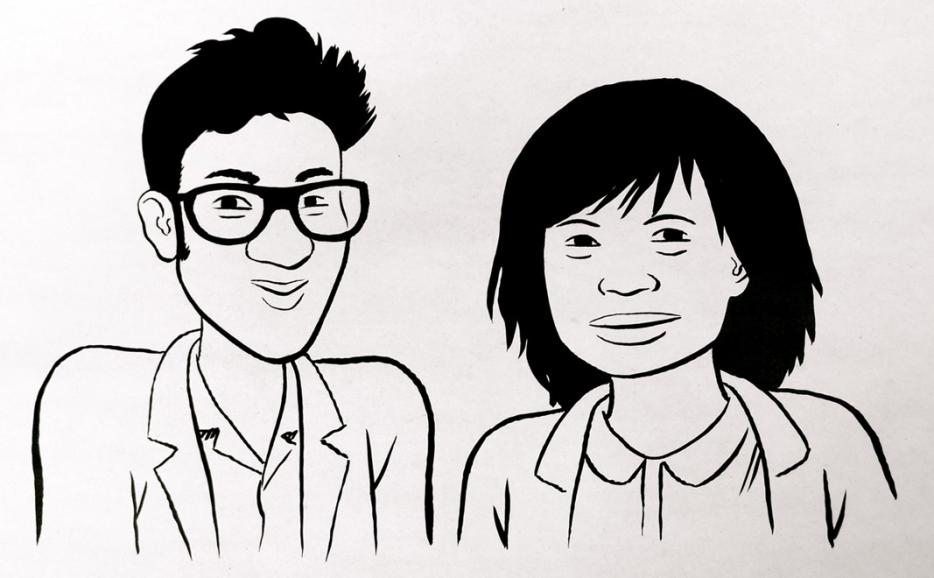Every week or so, Sook-Yin Lee and Adam Litovitz have a movie date. Then they talk about the movie. Discussed this week: Like Someone in Love by Abbas Kiarostami.
ADAM: It’s interesting that we’re using two recorders to deal with this movie in particular.
SOOK-YIN: I have an old-school cassette Walkman recorder with tiny disco lights. It’s very tactile and the buttons go clunk when you push them. Somehow I trust this technology to record our conversation more than your iPhone, which I can’t text with at all. I’m all thumbs.
ADAM: It also makes sense that we’re using two recorders to deal with this particular movie about resemblances, about things that weren’t necessarily the actual thing itself, but seemed like it—sort of like [Iranian filmmaker Abbas Kiarostami’s last film] Certified Copy.
SOOK-YIN: Kiarostami’s latest, the Japanese-set Like Someone in Love, is about a university student/sex worker named Akiko who has a jealous fiancée, and an elderly, professorial john who tries to teach them about love. At first, I thought it would be an indictment of the sex industry, but Kiarostami thwarts our expectations. Akiko is befriended by the john, yet her boyfriend is prone to violence. He resorts to aggression to make her into a good woman.
ADAM: Her boyfriend is very traditional. There was a collective groan in the audience when the fiancée says that marriage will “tame” her. It’s throwing back to Taming of the Shrew, or something like that—this belief that changing the linguistic definition or a symbolic move is going to suddenly change the nature of a relation, which it can.
SOOK-YIN: His desire for marriage is rooted in a need to control her. Once they are married, he believes she will only be in love with him. Surprisingly it’s not her fiancée who attempts to offer real love, but the john.

SOOK-YIN: For the professor, Akiko reminds him of his wife and daughter, and he wishes to repair that broken relationship by caring for Akiko. We’re constantly projecting these needs on others, and they don’t necessarily serve the needs of the person we’re trying to care for.
ADAM: We have to pretend to know a person to deal with them, but we can’t know them, or what kind of soup they’ll want to eat at any particular moment. They could fall in love with someone else. The title “Like Someone in Love”—it’s a play of resemblances.
SOOK-YIN: Do you think you know me well?
ADAM: Nobody can know anybody really well, but they can deal with a play of shadows and have provisional truths.
SOOK-YIN: I think I know you some. I think I love you. And I think you have a pair of glasses that make you look smart. Whether or not that’s accurate, I know you are smart.
ADAM: Thanks.






